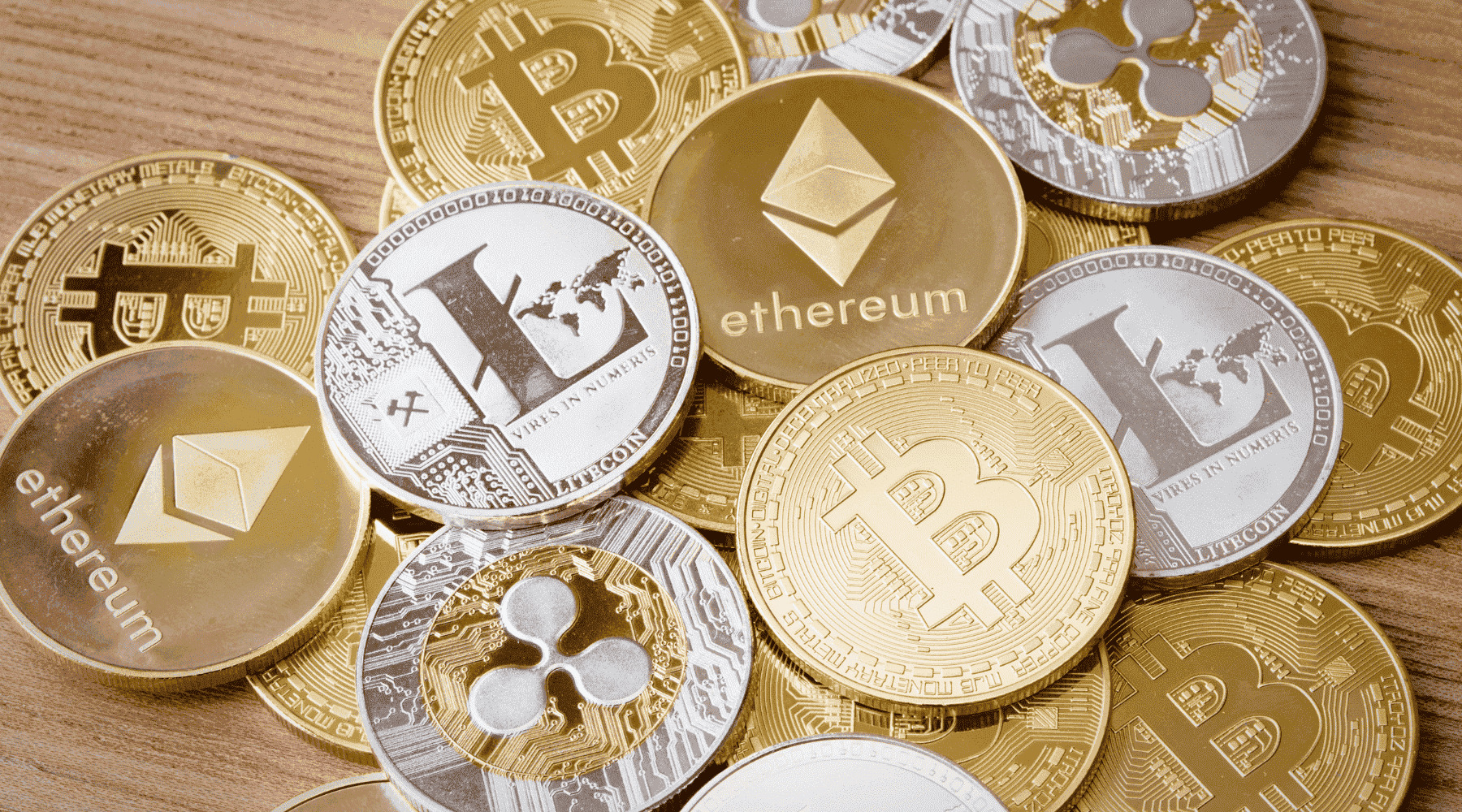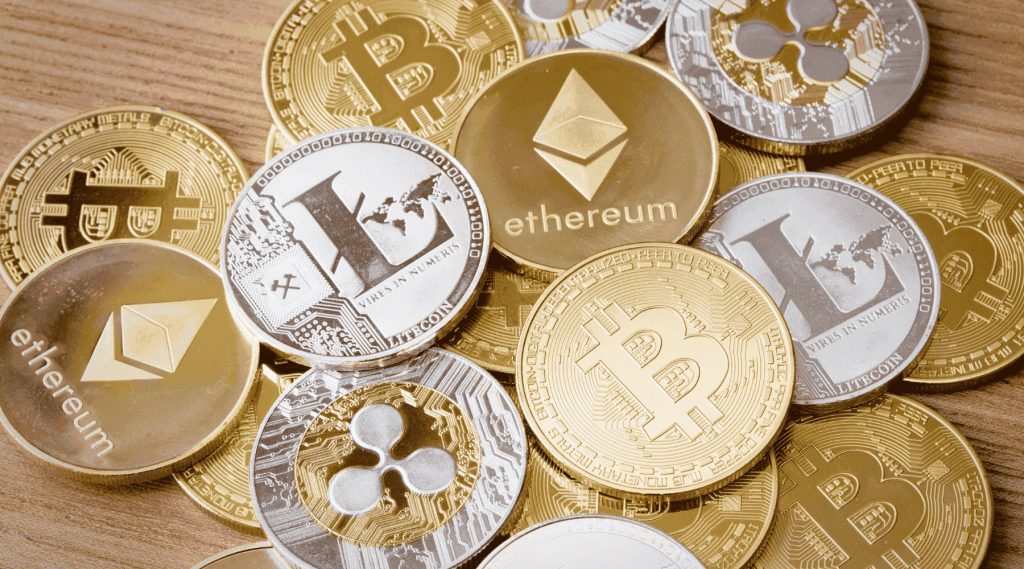If you wish to trade cryptocurrencies, whether you are a newbie or an expert trader, you are spoiled for choice. There will be approximately 7,300 cryptocurrencies by the end of 2020—and counting. In addition to the long-established coins, new cryptocurrencies enter the market on a daily basis. We will ask ourselves the following questions throughout our broad cryptocurrency comparison: Which cryptocurrencies are worth investing in? Which ones have the most promise? What is the most valuable cryptocurrency? We offer and explain the most popular and greatest cryptocurrencies. Moreover, we have a few cryptocurrency insider recommendations that investors should not overlook!

Cryptocurrency comparison: Which cryptocurrencies are there?
There are over 7300 cryptocurrencies in circulation, with a total market valuation of $342 billion. As a result, the list is lengthy, making it difficult to keep track of everything. This table lists the coins that are presently available:
Cryptocurrency comparison in detail
Of course, we cannot go into all cryptocurrencies, but we have selected the 16 most popular and best cryptocurrencies for our cryptocurrency comparison. In our cryptocurrency comparison, you can see all the details you need to find the right cryptocurrency for you. Incidentally, all cryptocurrencies are available from our test winner, the crypto broker Plus500.
- Recommended broker
Our recommendation:
Invest with Plus500
1. Lucky Block (LBLOCK)
Lucky Block is perhaps the most popular token on the market. The new cryptocurrency has already completed its initial listing on Pancake swap, with other listings already in the works. The digital currency has a very particular purpose: to create a worldwide lottery that should be much more fair and transparent than traditional offerings.
Blockchain technology is thought to be the key to solving this problem. The Binance Smart Chain’s smart contracts guarantee that procedures are automated. Even investors who dislike gambling may benefit from the technique. Lastly, 10% of all jackpots are returned to the community.
2. Bitcoin (BTC)
Satoshi Nakamoto established the first cryptocurrency, Bitcoin, in 2009. To date, Bitcoin is the biggest cryptocurrency and unquestionably the best. The purpose of Bitcoin was to secure payments and transactions using a peer-to-peer network.
The goal was to democratize the financial and monetary systems while also ensuring that all transactions could be conducted anonymously. Bitcoin is most likely the market’s most well-known cryptocurrency. Moreover, it is entirely safe; no unauthorized individual has ever gained access to it.
3. Ethereum (ETH)
Ethereum is often regarded as the second most valuable cryptocurrency. Like Bitcoin, it uses blockchain technology and a decentralized network. Smart contracts are used in Ethereum. Ethereum is backed by seasoned creators like Vitalik Buterin.
Ethereum has a significant advantage over Bitcoin in that it is still much undervalued. Yet the coin’s value has risen since its inception. Another benefit is that the coin is utilized outside the Ethereum network, resulting in very fast transaction times.

4. Bitcoin Cash (BCH)
Bitcoin Cash was introduced in 2017 as a more secure and speedier blockchain technology. As a result, Bitcoin Cash has become a digital currency in its own right. Bitcoin Cash allows for more transactions than Bitcoin does. This is shown fairly clearly in comparison: Although Bitcoin Cash has a maximum block size of 8 MB, Bitcoin only has a maximum block size of 1 MB.
In principle, Bitcoin Cash might soon replace Bitcoin as a payment method. The quick transaction speeds are appealing to investors. Mining, on the other hand, necessitates the use of specialized equipment.
5. Ripple (XRP)
Ripple was designed as an alternative payment system to convert and facilitate cross-border payments. Over 100 financial institutions have used ripple. The ripple blockchain will have more than 300 suppliers in 40 countries by 2020.
As a result, Ripple intends to use blockchain technology to assist banks in lowering transaction costs. The most significant benefit of Ripple is its many collaborations with financial service providers. Ripple, on the other hand, is not yet a decentralized cryptocurrency.
6. dash
Dash is a cryptocurrency that was created in 2014 as an open source project. It provides user-friendly and scalable online transaction solutions. Dash, like Bitcoin, is based on blockchain technology.
Dash beats Bitcoin in terms of transaction speed. As compared to Bitcoin, a transaction using Dash takes just a few seconds.
7. Litecoin (LTC)
Litecoin (LTC) is a cryptocurrency that, like Bitcoin, seeks to establish itself as a method of payment, controls all transactions via a peer-to-peer network, and employs blockchain technology.
Like Bitcoin, it may be swapped for real money on a variety of cryptocurrency exchanges. It is theoretically current due to the early inclusion of SegWit and the Lightning Network.
8. Ethereum Classic (ETC)
Ethereum Classic is another open-source blockchain-based platform. It is the first Ethereum blockchain. Ethereum and Ethereum Classic separated in June 2016. There was initially minimal acceptance in the community after the split, but this developed with time. ETC is continually growing in the direction of decentralization. In principle, Ethereum Classic aspires to be a highly scalable payment network that enables smart contracts and decentralized applications (dApps).
9. Cardano (ADA)
Cardano is a blockchain platform that is also used to execute smart contracts. A non-profit organization that consists of experts and academics who are constantly working on the protocol supports Cardano.
Cardano is one of Ethereum’s most potential rivals. This is a new initiative that began in 2017 and swiftly jumped to the top ten cryptocurrencies. In our cryptocurrency comparison it is also the first cryptocurrency founded on scientific research.
10. IOTA (MIOTA)
Iota has been a remarkable success story in recent years, with increased trader interest leading to a value of over 700 billion euros in 2020. As a result, the Iota Coin has grown to become one of the most popular cryptocurrencies ever.
What is notable about IOTA is that, unlike others, it is not built on blockchain technology but on IOTA’s own technology. This is known as Tangle. Transactions are free of charge, and Tangle has achieved decentralization. Other senders also confirm each transaction. IOTA, on the other hand, still has various problems and network outages. Nonetheless, efforts to upgrade the network are ongoing.
11. Stellar (XLM)
Stellar has been a remarkable success story in recent years, with increasing interest from traders resulting in a value of more than €1.7 billion in 2020. It is already one of the most popular cryptocurrencies in history.
Stellar is ranked 14th among the most popular cryptocurrencies. Stellar is a payment system as well as a blockchain operating system that supports smart contracts and decentralized applications. It’s code is based on the Ripple technology.
This is hardly unexpected given that the Stellar creator was formerly a part of the Ripple team. Stellar, in general, provides very quick and low-cost transactions. In contrast to Ripple, it is decentralized, open-source, and non-profit.
12. EOS (EOS)
EOS has been around since mid-2017 and has had its fair share of ups and downs in that time. Nonetheless, EOS has been stable since the cryptocurrency bubble broke in 2018.
Also, there has lately been an increasing tendency. EOS is a blockchain platform that is intended to mimic the hardware and operating system features of a
There are tools and services available to help with this. Moreover, EOS provides rapid transaction speeds but is vulnerable to inflation.

13. NEO (NEO)
NEO is a blockchain technology and cryptocurrency that is also known as the Chinese Ethereum. This crypto is claimed to be a direct rival to Ethereum, as well as other cryptocurrencies. It was established in China and provides an operating system for blockchain software.
NEO supports the Java programming language and makes blockchain development easy. NEO is traded on the same network, but only a few coins are established on it.
14. TRON (TRON)
TRON began on the Ethereum network before receiving its own blockchain in 2018. It is a key rival to other cryptocurrencies, that has also ascended to the top ten biggest cryptocurrencies in the world.
Decentralized apps and smart contracts are built and executed on the TRON blockchain in the same way that Ethereum is. Tron’s benefits include a huge market capitalization and distribution, as well as an energy-efficient Delegated Proof of Stake procedure. Tron, on the other hand, has a rather high volatility.
15. ZCash (ZEC)
Zcash is a decentralized, blockchain-based cryptocurrency that focuses on data security and user anonymity as a privacy coin. It aims to provide its customers with higher data security than Bitcoin.
When it comes to anonymity, Zcash is the second most popular cryptocurrency behind Monero. Among others, Edward Snowden supported, describing the money and technology as “very secure.”
16. Binance Coin (BNB)
The Chinese platform Binance created the cryptocurrency known as Binance Coin. There are already 200 million Binance Coin tokens in circulation. They may, for example, be purchased on the in-house platform or traded for other cryptocurrencies. As a result, the benefit is obviously in the trading expenses.
According to Binance, there is a 50% discount in the first year, a 25% discount in the second year, and a 12.5% discount in the third year.

Cryptocurrency comparison: the best brokers
Broker | Evaluation | Functions | Benefits | Spread | Leverage | Total Fees | Visit Provider |
|---|
4 | CFDs and forex, Stocks, ETFs, Crypto |
| Variable spread | 30:1 and other | 1% for buying or selling crypto |
4.8 | CFDs: Crypto, Indices, Forex, Commodities, Shares, Options, ETFs |
| Tight Spreads | 1:300 | No internal deposit fee |
 | 4.4 | • FX
• Metals
• Indices
• Cryptocurrencies
• Stocks
• Energies
|
| Tight spreads starting from 0.0 | 1:400 | Depending on payment method |
4.2 | 49 global currency pairs, commodities, index CFDs, stock CFDs, ETFs, metals, commodities, energy |
| Tight Spreads | 1:1 – 30:1 | No fees |
4.0 | 1000+ financial instruments, including Foreign Exchange, Commodities, Indices, Share CFDs, Cryptos, ETFs, and Bonds |
| 1.27 | 1:500 | $3 per side for every 100,000 units |
3.9 | 70 crypto-pairs, 49 forex pairs (usdzar as well), 5 metals, 26 Indices, 130 stocks, 6 oil and gas, 6 agriculture assets |
| Spreads from 0.00 | 1:999 | 3% + inactivity fee |
Cryptocurrency Comparison: Our Conclusion
Even if the bitcoin industry is still in its infancy, an investment is unquestionably valuable. The year 2020 demonstrated how powerful digital currencies can be amid a crisis. During the Corona epidemic, most cryptocurrencies gained as a result, numerous companies are already attempting to bring new cryptocurrencies to market.
Cryptocurrencies have long been a suitable alternative to stocks, CFDs, and other assets. Because of their high volatility, cryptocurrencies are especially appealing to short-term traders.
While Bitcoin remains the undisputed leader of all cryptocurrencies, there is now stiff competition. New cryptocurrencies are also gaining popularity, as our cryptocurrency comparison shows. As a result, Lucky Block may be the token of the hour. Substantial profits might be realized in 2022.
If you want to trade cryptocurrencies as an investor, we suggest Plus500, our test winner. Plus500 has a significant edge over other crypto exchanges in that it allows you to trade actual currencies as well as CFDs. There is also a diverse range of cryptos that is continually expanding. A separate wallet is also available for sending, receiving, and converting coins.
- Recommended broker






